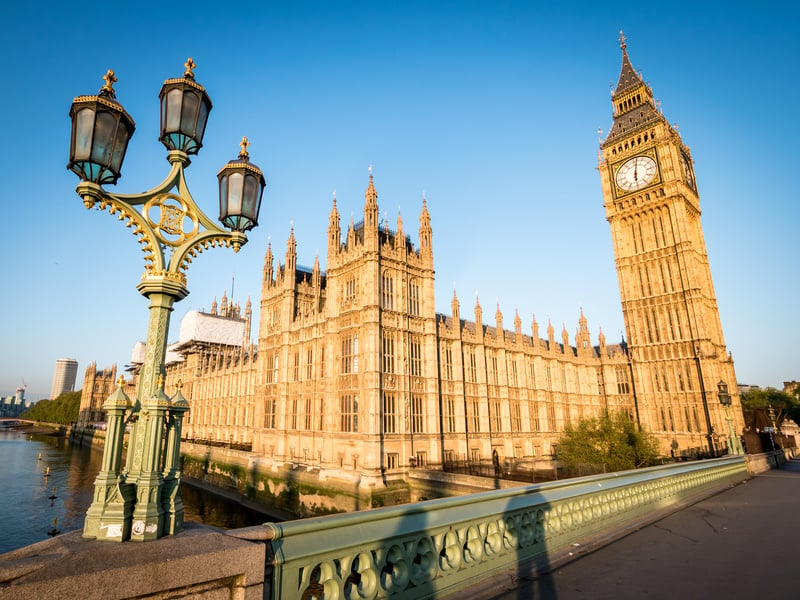In brief
The UK government has recently published further information about its proposed Plastic Packaging Tax that will apply to plastic packaging containing less than 30% recycled plastic content from 1 April 2022. This latest information is intended to help businesses prepare while the relevant primary legislation, the Finance Bill 2021, is considered by Parliament. Companies who manufacture in, or import into, the UK 10 or more tonnes of plastic packaging over a 12-month period will need to register and account for the tax at the rate of GBP 200 per metric tonne of packaging containing less than 30% recycled content. Record keeping requirements will still apply even if the 10 tonne threshold is not met. Notably, the tax will apply to imports of bulk packaging as well as packaging which already contains goods (such as plastic bottles filled with drinks).
In depth
1. Introduction
The proposed Plastic Packaging Tax aims to encourage the use of, and increase demand for, recycled plastic within packaging, stimulating increased levels of recycling and collection of plastic waste, and thus diverting it away from landfill or incineration. It follows from a consultation outlining plans for a “world-leading plastic packaging tax” that ran in early 2019 and received over 400 responses (see summary of responses here).
The proposal will work alongside planned reforms to the packaging producer responsibility system, as announced in the government’s 25-year “A Green Future” plan for the environment, by providing a clear economic incentive for businesses to use more recycled plastic in their packaging.
It also builds on the success of the existing plastic carrier bag charge introduced under the Climate Change Act 2008, which has led to major changes in consumer behaviour that have ultimately taken 9 billion plastic bags out of circulation, as well as other government initiatives relating to sustainable packaging. This includes the Department for Environment, Food and Rural Affairs’ recent consultation on introducing a deposit return scheme for bottles in England, Wales and Northern Ireland, as part of the UK’s move towards a more circular economy and the government’s prioritisation of resource efficiency.
Under the proposed legislation, all packaging components – products that are designed for the containment, protection, handling, delivery or presentation of goods at any stage in the supply chain of the goods, from the producer of the goods to the user or consumer – which are made from a majority of plastic (including bioplastics such as biodegradable, compostable and oxo-degradable plastics) by weight will be taxable if they are produced using less than 30% pre- or post-consumer recycled plastic. All forms of recycled plastic (except ‘scrap and regrind’ within a production facility) will count towards the 30% test for recycled plastic content.
2. Key obligations
Manufacturers and importers producing or importing 10 or more tonnes of plastic packaging over a 12-month period will need to register for the tax by 30 April 2022, regardless of whether they will owe any tax. This includes importers of packaging containing goods, such as plastic bottles filled with drinks. Businesses who are members of a group of companies and want to simplify the administration and payment of the Plastic Packaging Tax will be able to appoint a representative member of the group to submit returns and pay the tax for the whole group.
Businesses that manufacture or import plastic packaging will need to consider whether they have a registration obligation. Specific rules will apply for determining the treatment of packaging made from a mixture of plastic and non-plastic materials. Even if businesses determine they have no registration obligation (and therefore no tax liability) they will still need to keep records of quantities manufactured and imported and may need to provide evidence of their assessment to HMRC if required.
Manufacturers or importers responsible for accounting for the tax will need to include a statement confirming that the Plastic Packaging Tax has been paid on any invoices issued to business customers. Further, the current proposals provide that if the relevant obligated business does not account for the tax, other businesses in the supply chain may be found to be secondarily or jointly and severally liable for any unpaid tax.
3. Exemptions and credits
There are proposed exemptions from the tax, notably for plastic packaging manufactured or imported for use in the immediate packaging of a medicinal product and for plastic components that are permanently designated for use other than packaging.
Further, where plastic packaging is intended for export from the UK, payment of the tax can be deferred for up to 12 months as long as certain requirements known as the ‘direct export condition’ are met. If the packaging is exported within the 12-month period, the liability for Plastic Packaging Tax is cancelled. If the direct export condition is not met, the Plastic Packaging Tax will become due on the packaging from the date when the condition was no longer met.
Plastic packaging which is intended for UK use when it is imported or manufactured and has the Plastic Packaging Tax accounted for, but is subsequently exported from the UK, may produce an entitlement to a tax credit.
4. Industry Focus
In the run up to April 2022, businesses qualifying for the Plastic Packaging Tax will need to assess their current use of plastic packaging that does not meet the 30% test and will therefore be subject to the tax.
Further, as records of all the materials used in the manufacturing of the packaging and their weights will need to be kept by manufacturers and importers of plastic packaging, including those who do not need to register for the Plastic Packaging Tax, businesses handling packaging throughout the supply chain should carefully consider the requirements and implications of the new tax.
Businesses should also monitor the secondary legislation and further guidance that is expected to be adopted in the run up to April 2022.
Please do not hesitate to contact us if you have any questions or would like to discuss the potential effects of these new requirements on your business.





